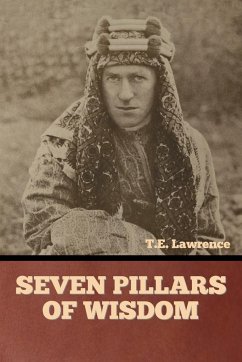Seven Pillars of Wisdom is the autobiographical account of the experiences of British Army Colonel T. E. Lawrence ("Lawrence of Arabia"), of serving as a military advisor to Bedouin forces during the Arab Revolt against the Ottoman Empire of 1916 to 1918. It was completed in February 1922, but first published in December 1926. Charles Hill has called Seven Pillars "a novel traveling under the cover of autobiography", capturing Lawrence's highly personal version of the historical events described in the book. An advertisement for the 1935 edition quotes Churchill as saying "It ranks with the greatest books ever written in the English language. As a narrative of war and adventure it is unsurpassable." The book was adapted into the film Lawrence of Arabia (1962). "Seven Pillars of Wisdom" is a song by heavy metal group Sabaton about Lawrence, released in July 2019 on the album The Great War. In Tony Parsons' novel, The Murder Bag (2014), the Seven Pillars is referenced as part of the curriculum at Potters Field school and has a formative influence on a group of former pupils. (wikipedia.org)
Hinweis: Dieser Artikel kann nur an eine deutsche Lieferadresse ausgeliefert werden.
Hinweis: Dieser Artikel kann nur an eine deutsche Lieferadresse ausgeliefert werden.









